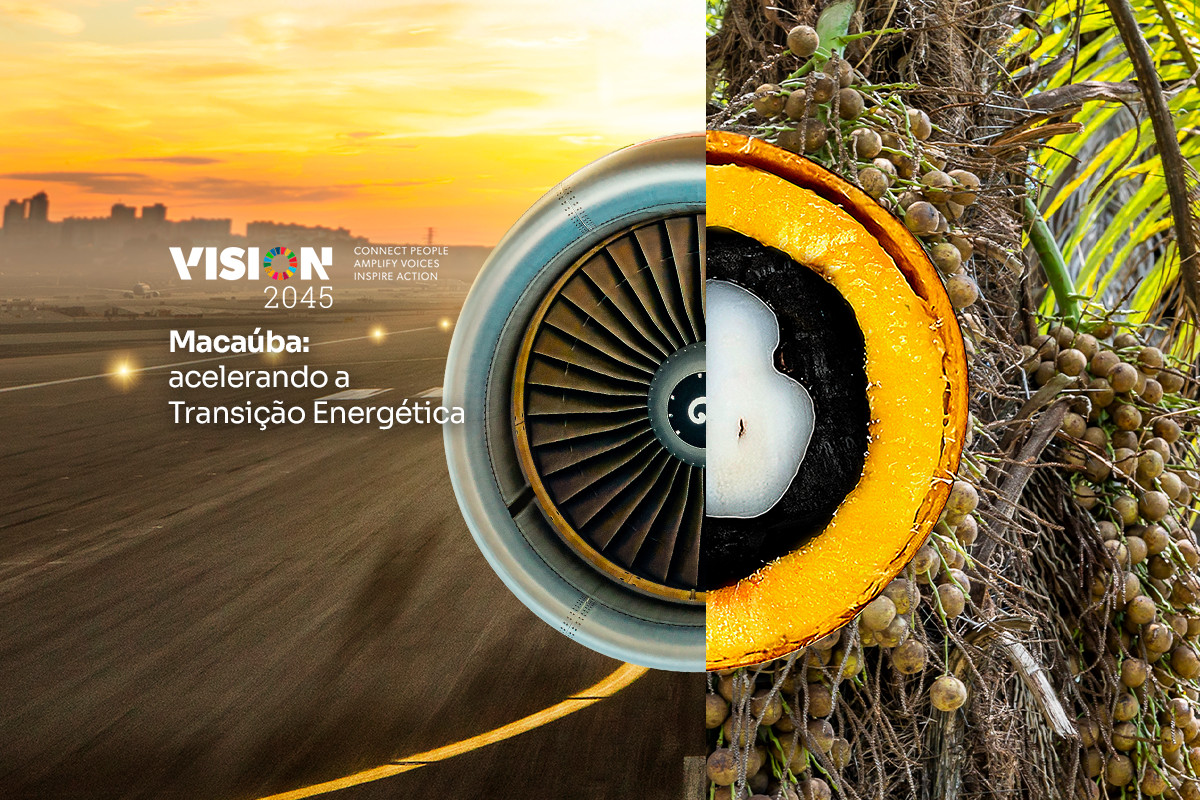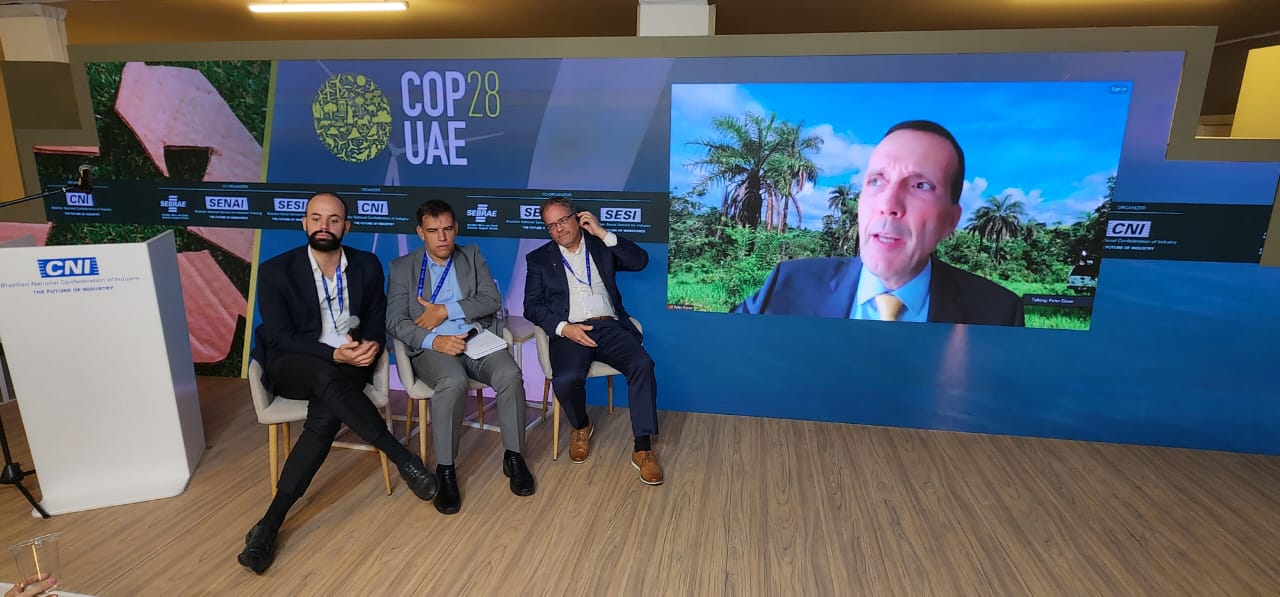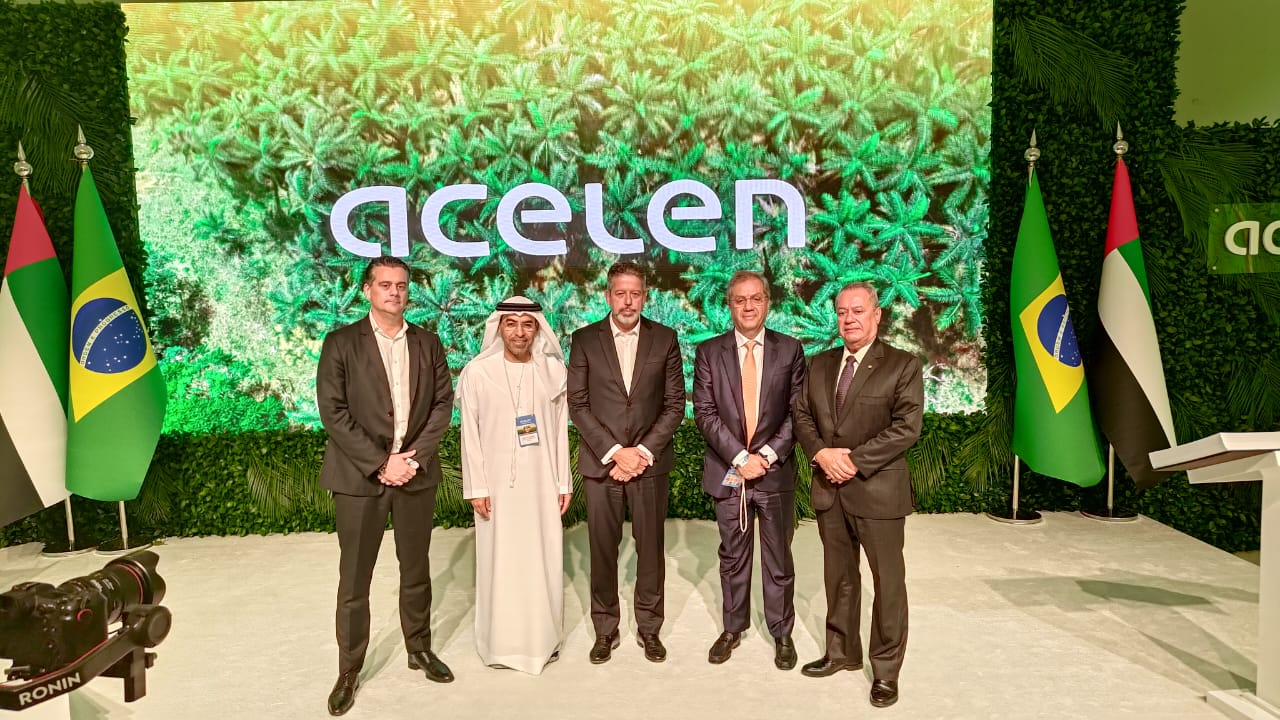Growing demand to decarbonize the economy
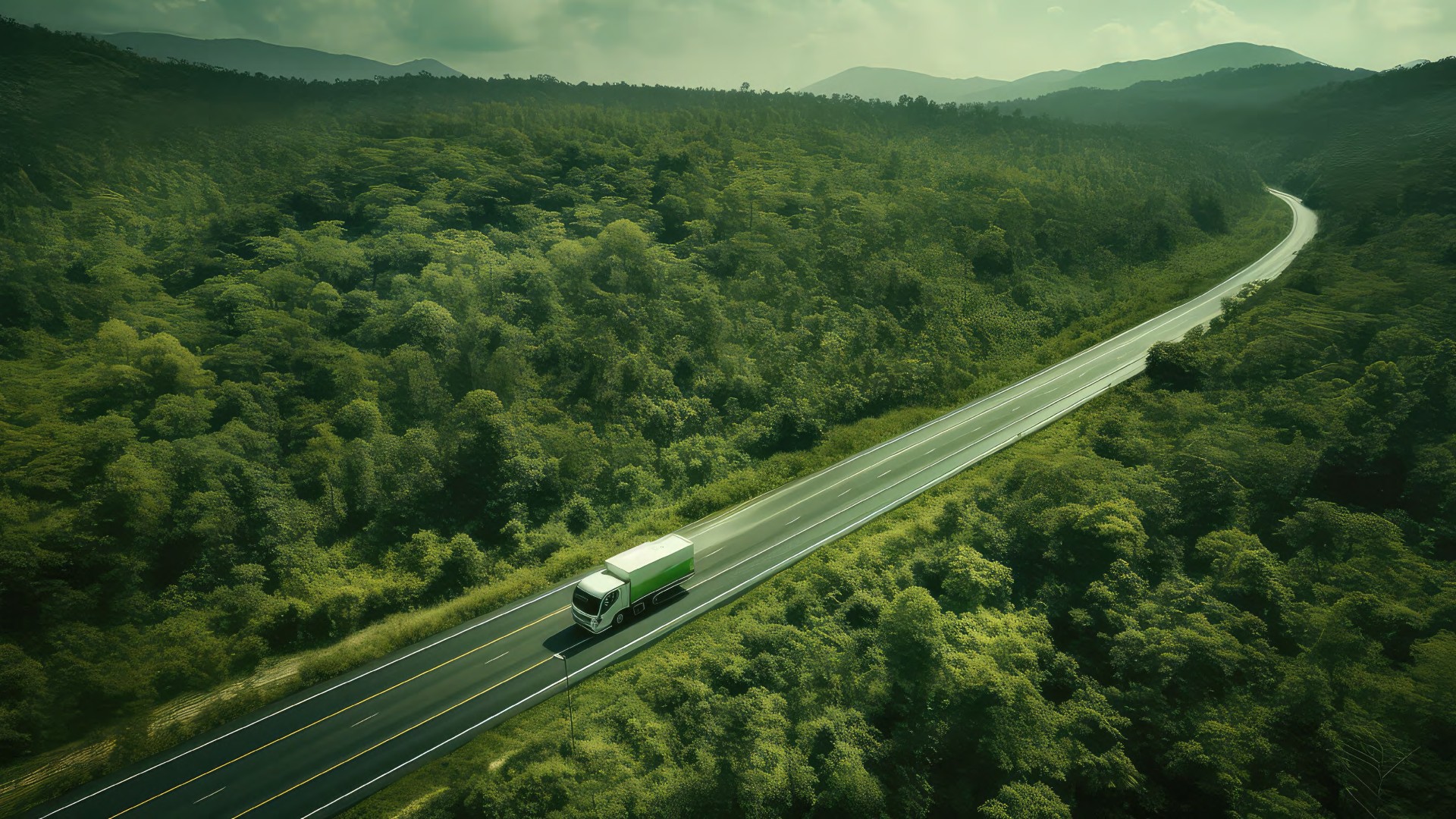
Global CO2 emissions could double by 2050. The mobility sector is responsible for 23% of global emissions and aviation accounts for almost 12% of them, which means that aviation emits almost 2% of total global emissions.
Tackling climate change globally means seeking rapid decarbonization in order to meet ambitious targets that challenge people, companies and countries in their definition of public policies.
Tackling climate change globally means seeking rapid decarbonization in order to meet ambitious targets that challenge people, companies and countries in their definition of public policies.
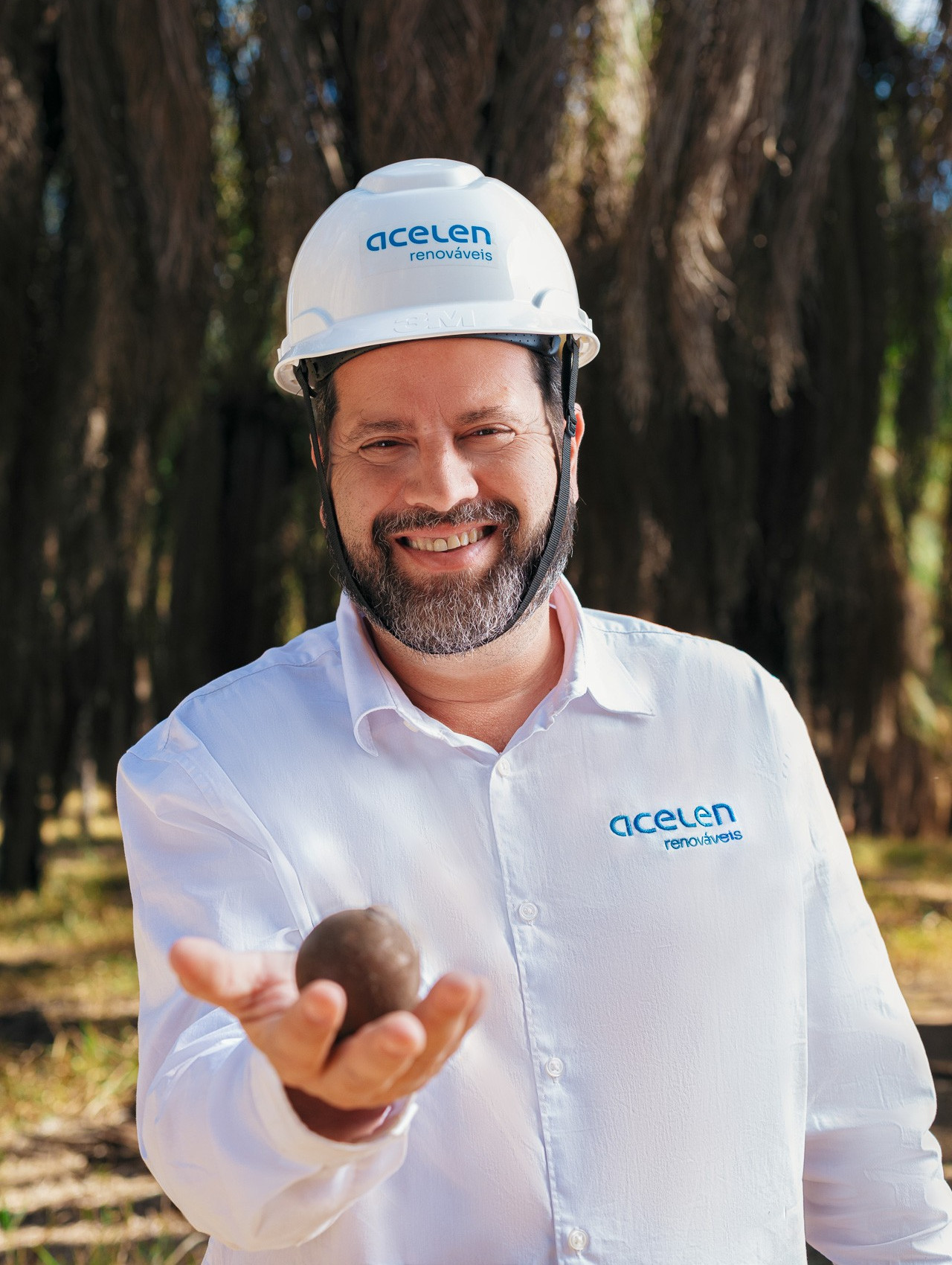
Acelen Renewables was created to provide an innovative and sustainable response to these issues, accelerate the energy transition on a global scale and meet the needs of the transport industry by offering renewable, high-performance fuels.
Macaúba has several advantages for the production of biofuels due to its high energy potential, low carbon content and unique ability to transform degraded and unproductive land into green areas that will capture carbon, regain their biodiversity and generate opportunities for family farming and small producers.
We are starting a new production chain, which will be fully integrated and verticalized by Acelen Renewables. Our model is innovative and will provide maximum efficiency from the agro-industrial operation to the production and distribution of biofuels.
To add even more credibility to the process, all phases – land selection and recovery, planting, production, harvesting, logistics and biofuel production – will be monitored and tracked, complying with the main global regulations.
To add even more credibility to the process, all phases – land selection and recovery, planting, production, harvesting, logistics and biofuel production – will be monitored and tracked, complying with the main global regulations.
Acelen’s project has a long-term sustainable vision with immediate action to speed up the decarbonization of transport. While the macaúba forests do not reach their productive maturity, we will use alternative sources, such as vegetable oils and wastes, which will gradually be replaced. It will take macaúba four years to mature and around eight years to reach its maximum level of productivity.
Some vegetable oils, such as EPA and ISCC Europe certified soy, could be an alternative that responds to the urgency of the energy transition and mitigating the effects of climate change.
In this phase, our production will have the potential to reduce CO2 emissions by up to 50% compared to those of fossil fuels.
We are also on the lookout for new feedstock that have similar or superior characteristics to those of macaúba, that are 100% sustainable and usable, that don’t require land use change or interfere with food production.
Some vegetable oils, such as EPA and ISCC Europe certified soy, could be an alternative that responds to the urgency of the energy transition and mitigating the effects of climate change.
In this phase, our production will have the potential to reduce CO2 emissions by up to 50% compared to those of fossil fuels.
We are also on the lookout for new feedstock that have similar or superior characteristics to those of macaúba, that are 100% sustainable and usable, that don’t require land use change or interfere with food production.
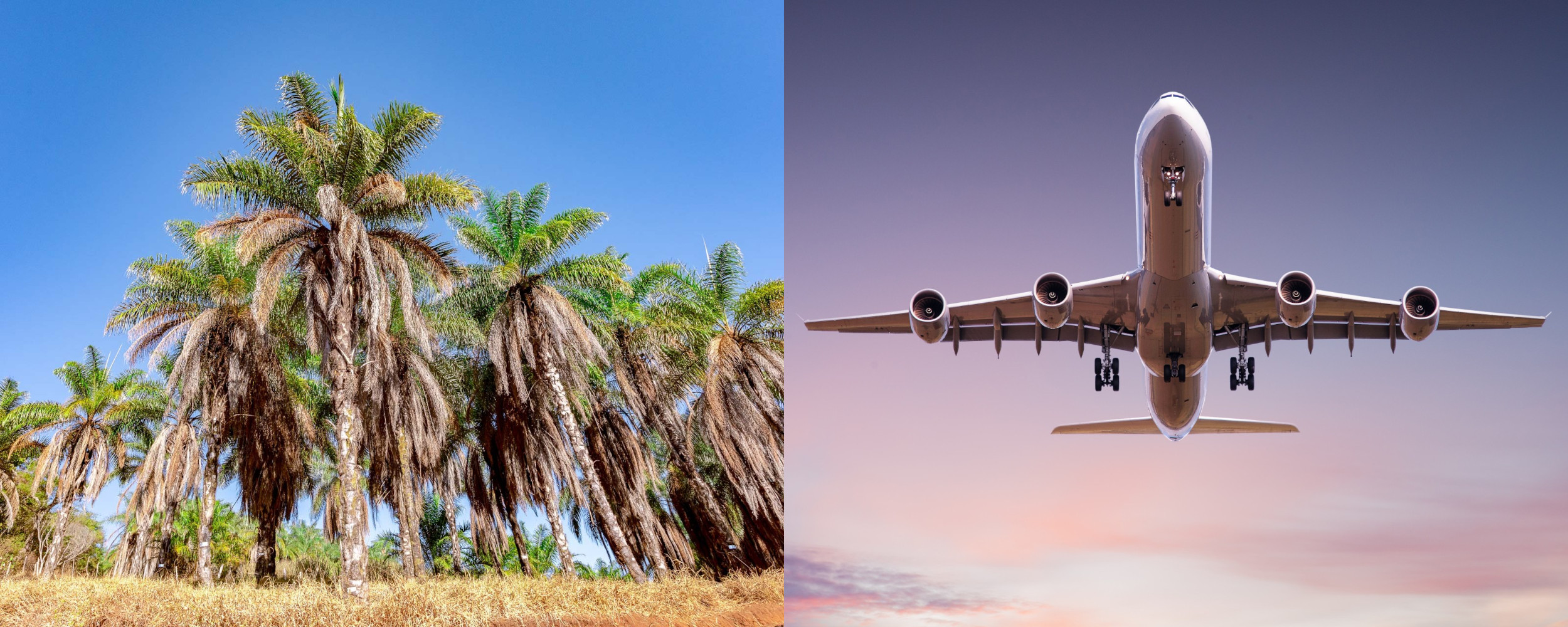
Our first biorefinery will have state-of-the-art technology, will be among the most modern in the world and will have the capacity to produce 1 billion liters of renewable fuels per year.
We will have a modern, verticalized and 100% flexible system to produce SAF (sustainable aviation fuel), HVO (renewable diesel) and other compounds, such as bio-GLP and naphtha, to generate renewable H2, which will be used in the hydrogenation of vegetable oils to produce biofuels and will further reduce our environmental impact.
With 4.0 technology, our biorefinery will be able to be supplied with different feedstock and will have total traceability from the origin of the seed to the fuel, safety in reducing pollutants, compliance throughout the chain and lower water and energy consumption.
The first unit will be built on the property of the Mataripe Refinery in Bahia, with an intelligent, integrated, optimized and replicable layout.
The synergy with the Mataripe Refinery for the use of terminals and other services will help our logistics operation.
We will have a modern, verticalized and 100% flexible system to produce SAF (sustainable aviation fuel), HVO (renewable diesel) and other compounds, such as bio-GLP and naphtha, to generate renewable H2, which will be used in the hydrogenation of vegetable oils to produce biofuels and will further reduce our environmental impact.
With 4.0 technology, our biorefinery will be able to be supplied with different feedstock and will have total traceability from the origin of the seed to the fuel, safety in reducing pollutants, compliance throughout the chain and lower water and energy consumption.
The first unit will be built on the property of the Mataripe Refinery in Bahia, with an intelligent, integrated, optimized and replicable layout.
The synergy with the Mataripe Refinery for the use of terminals and other services will help our logistics operation.
News
